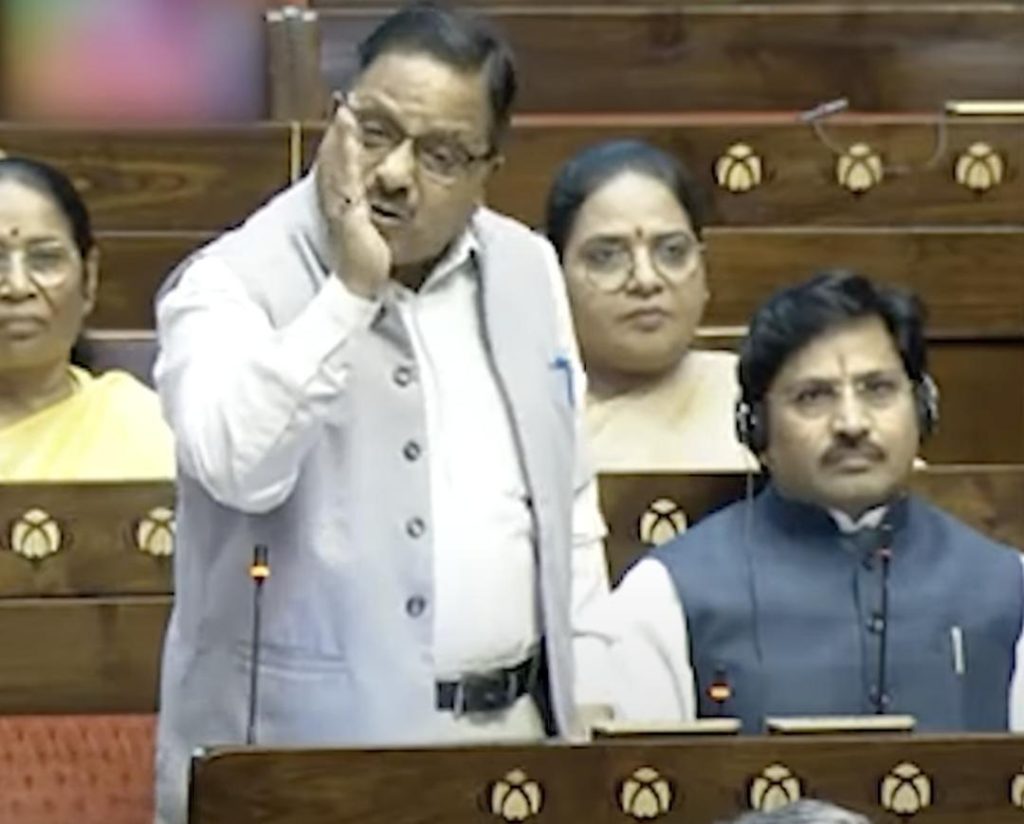
Should I Read the Quran and Tell You What’s Written in It: BJP MP Radha Mohan Das on Waqf Bill
In a recent debate over the Waqf Bill, a Bharatiya Janata Party (BJP) Member of Parliament (MP), Radha Mohan Das, made a thought-provoking statement that has sparked a heated discussion among religious scholars, politicians, and the general public alike. During the discussion, Das asked if he should read the Quran and share its contents with the audience. This statement has raised several questions about the intentions behind his request, the relevance of the Waqf Bill, and the role of religion in politics.
The Waqf Bill, also known as the Muslim Waqf (Properties) Bill, is a proposed legislation aimed at reorganizing the management of Waqf properties, which are religious endowments belonging to Muslims. The bill has been a subject of controversy, with opponents claiming that it will lead to the government’s interference in religious matters and the erosion of Muslim personal law.
Das’s statement was made during the debate on the bill, where he questioned the Waqf Board’s management of its properties. He cited a verse from the Quran, saying that even if one rupee is given to anyone, there should be a written record. He then asked, “Should I read the Quran and tell you what is written in it? And you say you have so many properties without a record?” This statement was aimed at highlighting the alleged irregularities in the Waqf Board’s management and seeking to create a sense of accountability.
There are several aspects of Das’s statement that require examination. Firstly, his request to read the Quran and share its contents raises questions about his intentions. Is he genuinely interested in understanding the Islamic scripture, or is he trying to use it as a tool to score political points? It is essential to recognize that the Quran is a religious text that holds immense significance for Muslims, and its interpretation is a complex process that requires a deep understanding of Islamic theology and jurisprudence.
Secondly, Das’s statement highlights the importance of transparency and accountability in the management of Waqf properties. The Waqf Board is responsible for managing a vast array of properties, including mosques, shrines, and charitable institutions. However, there have been allegations of mismanagement, corruption, and lack of transparency in the board’s operations. Das’s request for written records of the properties is a legitimate demand, as it would help to ensure accountability and prevent the misuse of these properties.
Thirdly, Das’s statement has sparked a debate about the role of religion in politics. In a democratic setup, religion and politics are often intertwined, with political leaders using religious rhetoric to mobilize support and justify their policies. However, this can lead to a blurring of the lines between religious and secular domains, which can have far-reaching consequences. In the Indian context, where religious diversity is a defining feature of the country, it is essential to maintain a secular approach to governance and avoid the use of religion as a tool for political gain.
In conclusion, Das’s statement has raised several important questions about the Waqf Bill, the management of Waqf properties, and the role of religion in politics. While his request for transparency and accountability is legitimate, his attempt to use the Quran as a tool to score political points is problematic. It is essential to recognize the complexities of religious texts and avoid using them as a means to justify political agendas. Ultimately, the debate surrounding the Waqf Bill serves as a reminder of the importance of maintaining a secular approach to governance in a diverse and pluralistic society.
Source: https://www.youtube.com/watch






